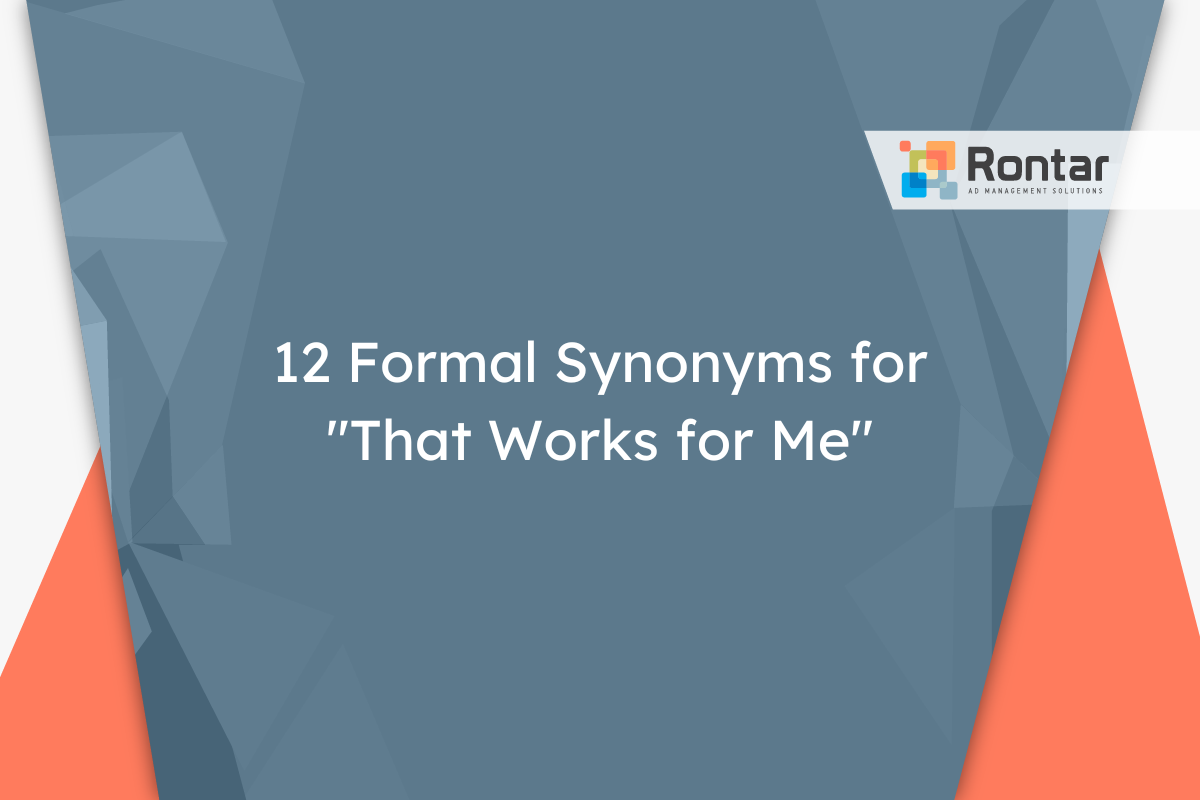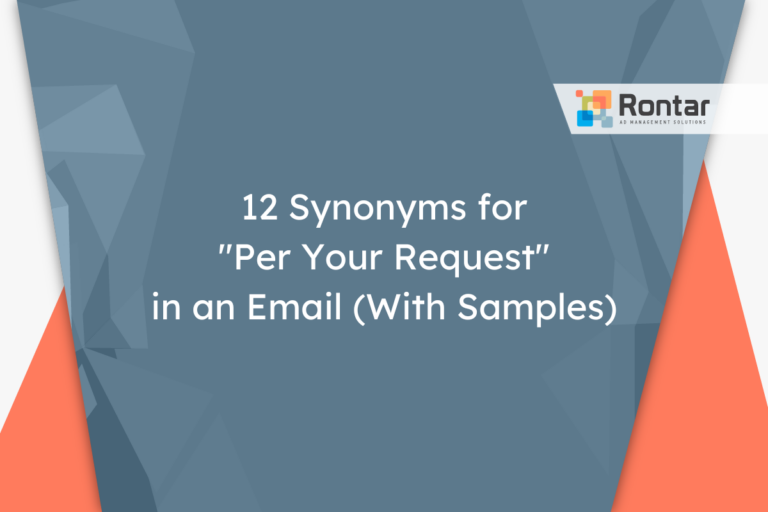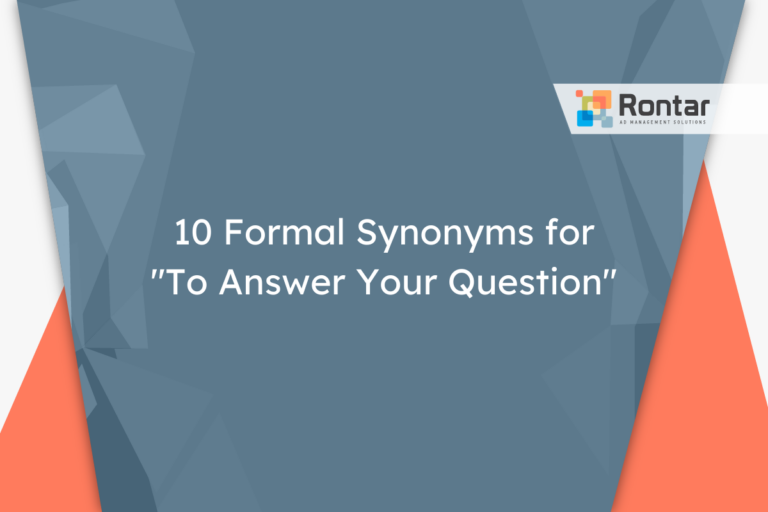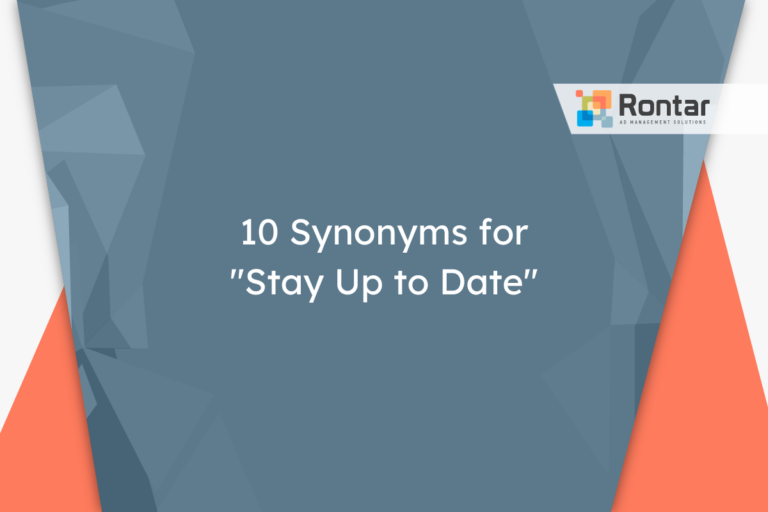12 Formal Synonyms for “That Works for Me”

Communicating effectively is key, especially in professional settings. Sometimes, the phrase “that works for me” might feel too casual or just not quite right for the situation.
This article provides twelve alternatives to help you choose the best way to express agreement. Whether you need something more formal, informal, or just a different way to say it, we’ve got you covered.
Is It Formal to Say “That Works for Me”?
When it comes to professional settings, the phrase “that works for me” falls into a gray area. It’s often seen as both polite and informal. While it’s definitely polite enough for most conversation, its formality depends heavily on the context in which it’s used. It might be perfectly acceptable in a casual business discussion but could seem too laid-back for more formal communications or situations where a stronger level of professionalism is expected.
In professional settings, this phrase is typically used to show agreement or acceptance of a proposal or plan without being overly formal. It strikes a balance, indicating that you’re cooperative and flexible. However, for meetings with high-level executives, formal documents, or critical business communications, you might choose a different expression to convey your agreement.
Here is an example of how “that works for me” might appear in a business email:
Hi Matthew, Thank you for sending over the meeting agenda. I've reviewed the topics you laid out and the proposed times. That works for me. I look forward to our discussion on Thursday. Best Regards, Emily
Pros:
- Conveys agreement in a friendly, cooperative manner.
- Shows flexibility without being overly formal.
- Can help maintain a positive tone in communications.
Cons:
- May not be suitable for very formal contexts.
- Could be perceived as too casual in some professional settings.
- Lacks the formality that might be required when dealing with certain audiences.
There are times when someone might want to consider using an alternative phrase. The choice to use synonyms or alternatives can depend on the level of formality expected in the communication or with the audience you are engaging. For example, in communications with new clients, a more formal alternative could make a better impression, demonstrating professionalism and respect. Furthermore, using a variety of phrases can enrich your language, making your communication more engaging and precise.
12 Other Ways to Say “That Works for Me”
Here are twelve formal and informal alternatives to the phrase “that works for me,” each with its unique tone and level of formality.
- That fits my schedule
- That’s fine with me
- That’s good for me
- That suits me
- That’s doable
- I can work with that
- That’s agreeable to me
- That will be suitable
- I agree
- That will work
- That is acceptable
- I can do that
1. That fits my schedule
This synonym is slightly more formal than “that works for me,” focusing on the suitability within one’s schedule specifically. It carries a more professional tone, making it a good choice in a work setting where you’re agreeing about the timing of a meeting or a deadline.
This alternative is better suited when the context involves scheduling or planning. It’s especially helpful in professional emails where you want to highlight that the proposed time aligns well with your other commitments.
Here is a sample message using this alternative:
Hi Jack, I've looked over the proposed meeting times you sent. That fits my schedule for next Thursday afternoon. Best, Sophia
2. That’s fine with me
This option is more informal and best used in casual or friendly settings. While still polite, it suggests a laid-back and flexible attitude toward whatever is being proposed.
Use this alternative when the atmosphere is more relaxed, and you’re conveying acceptance without needing to sound overly formal. It’s perfect for internal team emails where everyone is already on friendly terms.
Sample email for this phrase:
Hi Mike, Checking in about our lunch meeting. That's fine with me, see you then. Cheers, Laura
3. That’s good for me
This phrase is a versatile option that can be seen as both informal and polite. It’s a positive response, indicating not just acceptance but also enthusiasm about the proposal.
When you want to express not just agreement but also positivity about an arrangement, this phrase is an excellent choice. It works well in both professional and personal contexts, especially in messages where you want to sound cooperative and upbeat.
Here’s an example using this alternative:
Hi Paula, Thank you for proposing the new project timeline. That's good for me, and I'm excited to get started. Best wishes, Ethan
4. That suits me
This alternative carries a formal tone and is more commonly used in British English. It implies that the arrangement not only works for you but is also well-suited to your needs or preferences.
This is particularly effective in conversations where you want to convey a sense of elegance or formality. It’s well-suited for communication with clients or in environments where a higher level of professionalism is expected.
Here’s a sample message for this synonym:
Dear Ms. Thompson, Regarding the upcoming conference call, that suits me. I look forward to our discussion. Sincerely, Roger
5. That’s doable
This phrase is decidedly informal and communicates a level of easy-going flexibility. It suggests that, while the proposal might not be ideal, it’s still possible to work with.
This alternative is better suited for situations where you want to acknowledge a compromise or convey that you’re willing to adjust. It’s great for internal communication within teams or with colleagues you have a good rapport with.
An example message featuring this alternative:
Hey Jenna, After looking at the project requirements, that's doable. Let's chat about specifics tomorrow. All the best, Derek
6. I can work with that
This alternative to “That works for me” leans a bit more informal but remains polite and adaptable. It implies a willingness to adjust or compromise, making it a great choice in collaborative settings. Compared to the original phrase, it adds a hint of flexibility and cooperation.
When looking for a phrase that’s informal yet polite and suitable for teamwork or projects where adaptation is key, we recommend “I can work with that.” It’s especially fitting in emails among team members or in discussions where you’re presented with an option that’s not perfect but still viable.
Here’s a sample message:
Hello Team, Thank you for the update on the project timeline adjustments. After reviewing the proposed changes, I can work with that. Let's discuss the next steps in our meeting tomorrow. Best regards, Emily
7. That’s agreeable to me
This expression is more formal and indicates a clear acceptance of a proposal or suggestion. It’s less commonly used in everyday conversation, making it stand out as more thoughtful and considered. It implies that the speaker has given some thought to the matter before agreeing.
When precision and a slightly more formal tone are desired, “That’s agreeable to me” is an excellent choice. It’s particularly useful in written communications where you want to convey agreement with a touch of formality, such as in business emails or in responses to official requests.
Here’s an example email:
Dear Mr. Thompson, I've reviewed the contract revisions you proposed, and that's agreeable to me. Please proceed with the next steps for finalization. Sincerely, Linda
8. That will be suitable
This synonym suggests a calm and collected agreement, emphasizing suitability over personal preference. It’s a professional and polite way to accept suggestions or plans, particularly in environments where decisions are based more on practicality than personal choice.
This alternative shines in scenarios requiring a formal tone, such as communications with superiors or when discussing arrangements in which you wish to highlight the appropriateness of a solution. It subtly implies that you’ve considered the options and deem this one appropriate.
Consider this sample message:
Dear Committee, After evaluating the venue options for our annual conference, that will be suitable. I believe it meets all our requirements effectively. Kind regards, Jordan
9. I agree
Simple and straightforward, “I agree” is a universally recognized way to express concurrence. It’s both formal and informal, making it incredibly versatile. This phrase directly states agreement without any nuances, making it ideal for clear and unambiguous communication.
In situations where brevity is appreciated and there’s no need for elaboration, “I agree” works perfectly. It’s especially effective in meetings, emails, or discussions where decisions need to be made quickly and without any doubt about your position.
Here’s an email example:
Dear Dr. Harris, Regarding the proposed changes to the research methodology, I agree. Let's implement these adjustments as soon as possible. Best, Alex
10. That will work
“That will work” is a synonym that conveys agreement in an informal yet polite manner. It’s slightly more casual than the original phrase but still acceptable in many professional contexts. This alternative suggests practicality and a focus on solutions.
When a straightforward, solution-oriented response is needed, especially in less formal or more collaborative environments, we recommend “That will work.” It’s well-suited for quick emails, team discussions, or any context where you want to agree without overcomplicating the message.
Here’s a sample email:
Hi Jack, After reviewing the updated project schedule, that will work. Let's aim to keep this momentum going. Cheers, Mike
11. That is acceptable
This phrase is a more formal way to express agreement, carrying a sense of measured approval. It implies that the option meets the minimum criteria or standards expected. “That is acceptable” can sometimes suggest reluctance or lack of enthusiasm, so it’s best used when you want to maintain a professional distance.
In contexts where you need to convey approval while also hinting at a degree of reservation or when dealing with formal agreements, “That is acceptable” is an appropriate choice. It’s particularly useful in negotiations or when approving proposals with some reservations.
Here’s an email example:
Hi Eric, That is acceptable. Let us proceed to the next steps in finalizing the contract. Regards, Sophia
12. I can do that
This alternative is more informal and conveys a sense of personal capability or willingness to take on a task. It’s less about agreeing with an idea and more about confirming one’s ability to comply or perform a specific request. “I can do that” is straightforward and suggests a proactive attitude.
For tasks or requests where you want to emphasize your willingness or ability to undertake something, “I can do that” is ideal. It fits well in emails or conversations where you’re being asked to handle a task, especially in more casual work environments or within teams.
Consider this example for use:
Hi Jenna, Thank you for considering me for this opportunity. I can do that and am looking forward to contributing to the team's success. Warmly, Tom
Final Thoughts
Finding the right words to show you agree or are okay with something is important. The phrase “that works for me” is useful, but sometimes you need different words. We’ve shown you many ways to say it, depending on how formal or informal you want to be.
Remember, the goal is to make sure your meaning is clear and fits the situation. It’s not just about what you say, but how you say it. Using these alternatives can help you communicate better in your emails and conversations.






